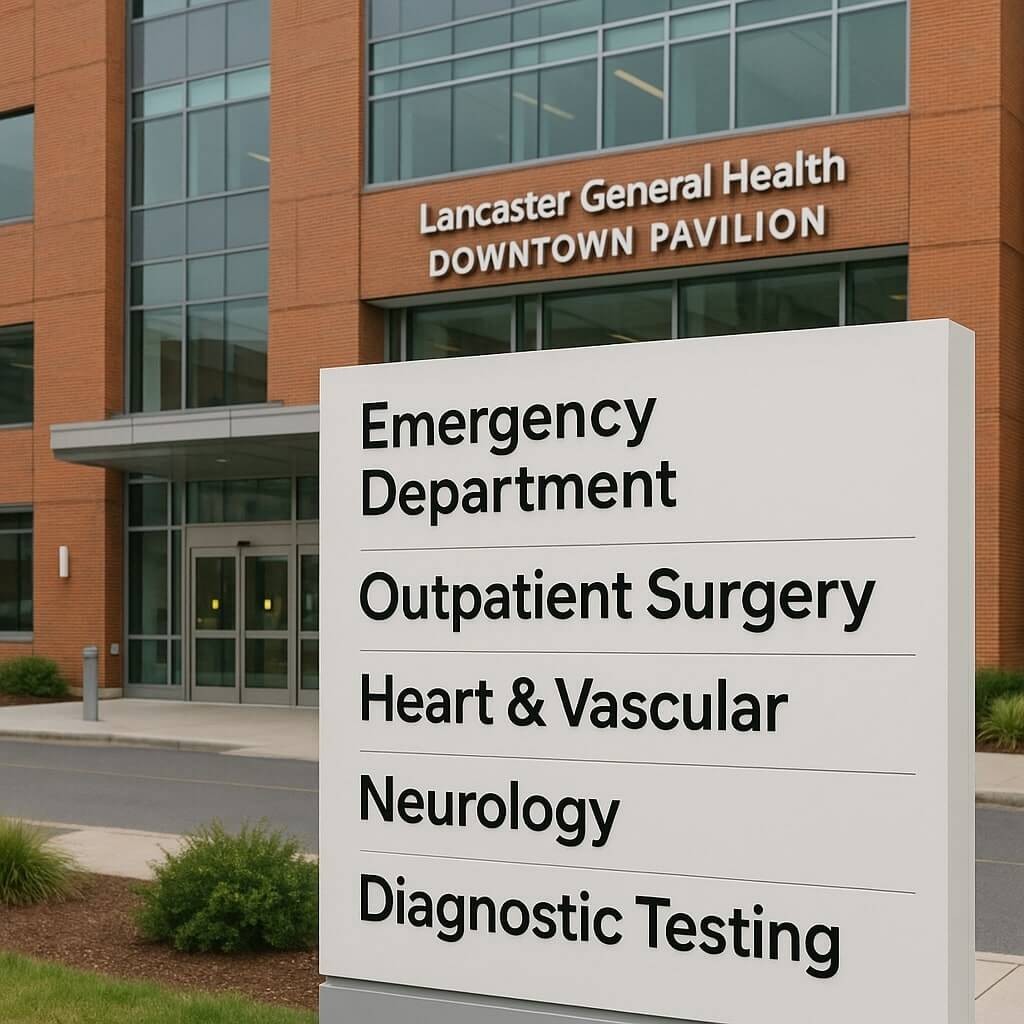In nursing, a general health evaluation is a crucial process that examines a patient’s overall health status. It involves gathering health history, performing physical exams, and evaluating essential signs, among other components. Understanding this assessment’s importance can greatly influence patient care and outcomes. As you explore the intricacies of this process, consider how effective health evaluations can transform nursing practices and enhance patient well-being.
Key Takeaways
- General health assessment in nursing is a comprehensive evaluation of a patient’s overall health status, identifying potential health issues.
- It includes collecting health history, performing physical examinations, monitoring vital signs, and assessing nutritional and mental health.
- Nurses play a critical role in conducting assessments, documenting findings, and collaborating with healthcare professionals for optimal patient care.
- Effective communication and active listening during assessments enhance patient engagement and understanding of their health conditions.
- Thorough health assessments support early disease detection, timely interventions, and improved overall patient outcomes and satisfaction.
Definition of General Health Assessment
A general health assessment is a thorough evaluation that provides a snapshot of an individual’s overall health status. Understanding its significance is vital for you as a healthcare provider.
This assessment not only identifies health issues but also aids in preventive care and management strategies. Accurate assessment documentation captures essential findings, ensuring clear communication among healthcare teams.
It enhances patient care, enabling timely interventions. By recognizing the health assessment significance, you can better appreciate how systematic evaluations contribute to improved health outcomes.
Ultimately, a well-executed general health assessment lays the foundation for effective treatment and informed decision-making in nursing practice.
Importance of General Health Assessment in Nursing
Understanding the importance of general health assessments in nursing is essential for your practice.
These assessments facilitate early disease detection, allowing you to tailor personalized care that meets each patient’s unique needs.
Ultimately, this approach leads to improved treatment outcomes and enhances overall patient well-being.
Early Disease Detection
Although many patients may not recognize the subtle signs of disease, early disease detection through thorough general health assessments is essential in nursing practice.
By identifying potential health issues early, you can implement early intervention strategies that greatly improve patient outcomes. Regular assessments allow you to monitor essential signs and symptoms, enabling the catch of anomalies before they escalate.
Incorporating preventive health measures into these assessments is important; it equips patients with knowledge and resources to maintain their health.
Ultimately, your role in early disease detection fosters a proactive approach to healthcare, promoting long-term well-being and reducing healthcare costs for patients.
Personalized Patient Care
When you conduct a general health assessment, you’re not just gathering data; you’re laying the groundwork for personalized patient care. By understanding patient preferences and health histories, you can tailor interventions that meet individual needs. This approach fosters trust and enhances the therapeutic relationship, ultimately leading to better patient outcomes.
| Aspect | Importance | Patient Preference |
|---|---|---|
| Communication | Enhances understanding | Preferred language/style |
| Treatment Options | Increases engagement | Desired methods of care |
| Follow-up Care | Guarantees continuity | Preferred contact method |
Improved Treatment Outcomes
A thorough general health assessment plays a pivotal role in achieving improved treatment outcomes for patients. By identifying health issues early, you can enhance treatment effectiveness and tailor interventions to meet specific needs.
This proactive approach not only facilitates timely care but also boosts patient satisfaction, as individuals feel heard and valued. When patients are involved in their care plans, adherence improves, leading to better health results.
Additionally, consistent assessments enable you to monitor progress and adjust treatments as necessary, ensuring that care remains effective and aligned with patient goals.
Ultimately, this all-encompassing strategy fosters a more positive healthcare experience for everyone involved.
Components of a General Health Assessment
A thorough general health assessment serves as the foundation for effective nursing practice.
You’ll want to focus on key components to guarantee a complete evaluation:
- Health History: Gather detailed information about the patient’s past and present health.
- Physical Examination: Conduct a systematic evaluation of the body systems.
- Vital Signs: Monitor temperature, pulse, respiration, and blood pressure.
- Nutritional Assessment: Evaluate dietary habits and nutritional status.
- Mental Health Evaluation: Assess emotional and psychological well-being.
Techniques Used in Conducting Health Assessments
Five key techniques enhance the effectiveness of health evaluations in nursing practice. Utilizing observation techniques allows you to gather essential visual information about a patient’s condition. Complementing this, effective interview strategies facilitate open communication, enabling patients to share their symptoms and concerns.
| Technique | Description | Purpose |
|---|---|---|
| Observation Techniques | Evaluating physical appearance and behavior | Identifying health issues |
| Interview Strategies | Structured or unstructured questioning | Encouraging patient dialogue |
| Active Listening | Fully concentrating on patient responses | Building trust and rapport |
| Nonverbal Cues | Observing body language | Understanding emotions |
| Note-taking | Documenting findings | Ensuring accuracy in records |
The Role of Nurses in Health Assessments
Nurses play an indispensable role in health assessments, acting as the primary link between patients and the healthcare system. You’re responsible for gathering crucial information, ensuring extensive evaluations, and utilizing effective assessment techniques.
Nurses are essential in health assessments, bridging patients and the healthcare system through comprehensive evaluations and effective communication.
Your key responsibilities include:
- Conducting thorough patient interviews
- Performing physical examinations
- Documenting medical histories accurately
- Identifying potential health risks
- Collaborating with other healthcare professionals
Common Tools and Instruments for Assessment
When conducting health assessments, understanding common tools and instruments is essential for accurate evaluation.
You’ll encounter various assessment scales and diagnostic instruments that aid in identifying patient needs and conditions.
Familiarizing yourself with these resources enhances your ability to provide effective and evidence-based care.
Assessment Scales Overview
Although various assessment scales exist, selecting the right tools for evaluating a patient’s health is essential for effective nursing care. Familiarizing yourself with different scale types can enhance your assessment criteria.
Here are some common assessment scales you might encounter:
- Visual Analog Scale (VAS): Measures pain intensity.
- Glasgow Coma Scale (GCS): Assesses consciousness level.
- Barthel Index: Evaluates daily living activities.
- Mini-Mental State Examination (MMSE): Screens for cognitive impairment.
- Braden Scale: Assesses pressure sore risk.
Using these tools will help you gather critical information, ensuring thorough patient evaluations and improved outcomes.
Diagnostic Instruments Utilized
Selecting appropriate assessment scales lays the groundwork for integrating diagnostic instruments into patient evaluations.
You’ll often rely on various assessment tools, such as questionnaires, screening forms, and physical examination techniques, to gather relevant data. These instruments help you measure patient outcomes against established diagnostic criteria, ensuring accurate evaluations.
For instance, standardized scales like the Mini-Mental State Examination can assess cognitive function, while tools like the Visual Analog Scale aid in pain assessment.
Challenges in Conducting General Health Assessments
Conducting general health assessments can present various challenges that impact both the accuracy of the findings and the overall patient experience.
Conducting health assessments poses challenges that can affect accuracy and patient experience significantly.
You may encounter issues such as:
- Time constraints limiting thorough evaluations
- Patient cooperation difficulties, especially in anxious individuals
- Variability in patients’ health literacy affecting understanding
- Environmental distractions disrupting focus during assessments
- Incomplete or inaccurate patient histories leading to misdiagnoses
Navigating these challenges requires a blend of effective communication, time management, and empathy.
Impact of Health Assessments on Patient Outcomes
When health assessments are performed effectively, they can greatly enhance patient outcomes by identifying potential issues early and guiding appropriate interventions.
You’ll notice that thorough assessments improve patient satisfaction, as patients feel heard and valued during their care.
Additionally, enhancing health literacy through these assessments empowers patients to understand their conditions better, leading to improved adherence to treatment plans.
By fostering open communication, you can address concerns and clarify information, ensuring patients are active participants in their health journey.
Ultimately, these strategies contribute to more favorable health outcomes, reinforcing the importance of extensive health assessments in nursing practice.
Conclusion
To summarize, a general health assessment in nursing is essential for understanding a patient’s thorough health status. By integrating various components such as health history, physical exams, and mental health evaluations, you can effectively identify potential issues and enhance patient care. The role you play in these assessments not only fosters trust but also greatly impacts patient outcomes. Embracing the challenges and utilizing appropriate tools will further strengthen your ability to deliver quality healthcare and improve overall patient satisfaction.




